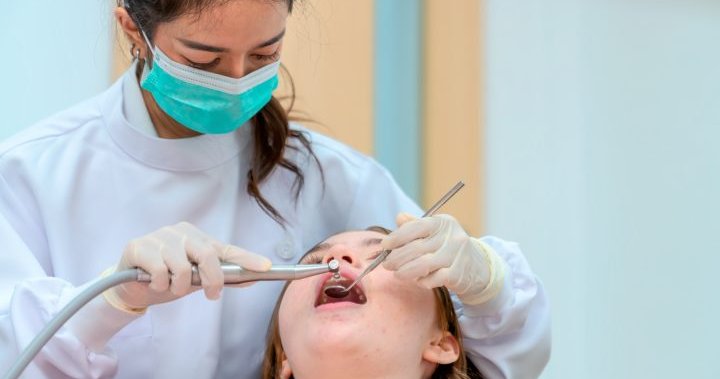Provinces in Canada that already provide dental care for children are receiving a smaller portion of federal funds from the Canada Dental Benefit program. This has raised concerns that the coverage for children may be reduced as the federal program expands. Data presented to Parliament reveals that provinces and territories that offer dental coverage for all children received less federal funding per capita compared to those with targeted coverage.
The federal dental benefit program was initiated last year and aims to offer financial assistance to low- and middle-income families without private insurance. Depending on their family income, children can qualify for cash payments of $260, $390, or $650. Provinces such as Prince Edward Island, Nunavut, Newfoundland and Labrador, Quebec, Nova Scotia, and Yukon, which already cover basic dental care for children, received less funding than the national average.
While the data suggests that the program is effectively filling coverage gaps, the Bloc Quebecois views the results as an “injustice.” Bloc MP Jean-Denis Garon emphasized that provinces with higher taxes and citizens who contribute more to their own dental plans receive less coverage from the federal program, effectively subsidizing dental programs in other provinces. This situation is seen as a deterrent for provinces to implement progressive programs.
British Columbia and New Brunswick were the only other provinces that fell below the national average. Yukon, despite having one of the most comprehensive provincial pediatric dental programs in the country, received the lowest amount of benefit money at $1.02 per person. Manitoba generated the highest revenue under the benefit program at $5.77 per person. This province offers targeted coverage, including preventive care for at-risk families and basic care for children under 18 from low-income families without private insurance.
The data available covers the benefits provided to 271,790 children from the program’s inception until April 27. The number of children receiving the Canada Dental Benefit has since exceeded 300,000. Population data is based on Statistics Canada estimates from the first quarter of 2023.
Initially, the Liberals promised a dental care program by the end of 2022 as part of their agreement with the NDP. However, due to the inability to meet that deadline, the government introduced a temporary benefit for children of middle-income families while working on a permanent program. The Liberals now aim to launch a $13-billion federal dental insurance plan by the end of the year. The plan will cover children under 18, seniors, and people with disabilities. The intention is to expand the coverage further in the following years.
This insurance plan would be available to eligible individuals with a household income below $90,000 without private insurance. Individuals receiving provincial coverage would still qualify for the federal plan. However, this approach raises concerns that provincial governments may decide to de-insure people and rely on the federal plan instead.
Colleen Flood, a research chair in health law and policy at the University of Ottawa, suggests that this might make fiscal sense for provincial governments. Quebec has already expressed a desire to opt out of the program and receive $3 billion over five years to enhance its own dental care programs. Health Minister Jean-Yves Duclos has indicated a willingness to negotiate with Quebec but has not confirmed whether the province will be allowed to opt out.
Flood commends the government for taking steps to address dental care gaps but emphasizes the need for a more comprehensive and sustainable dental health plan, rather than just insurance. In a paper published by the Institute for Research on Public Policy, Flood and other experts argue for a joint federal-provincial approach that involves an independent agency responsible for administering the insurance plan, establishing regulations, and collecting oral health data. The experts advocate for a universal dental care plan to ensure equity and efficiency, as opposed to the means-tested approach currently being pursued by the government.
The Liberals are expected to launch the first phase of the dental insurance plan by the end of the year.
Denial of responsibility! VigourTimes is an automatic aggregator of Global media. In each content, the hyperlink to the primary source is specified. All trademarks belong to their rightful owners, and all materials to their authors. For any complaint, please reach us at – [email protected]. We will take necessary action within 24 hours.


